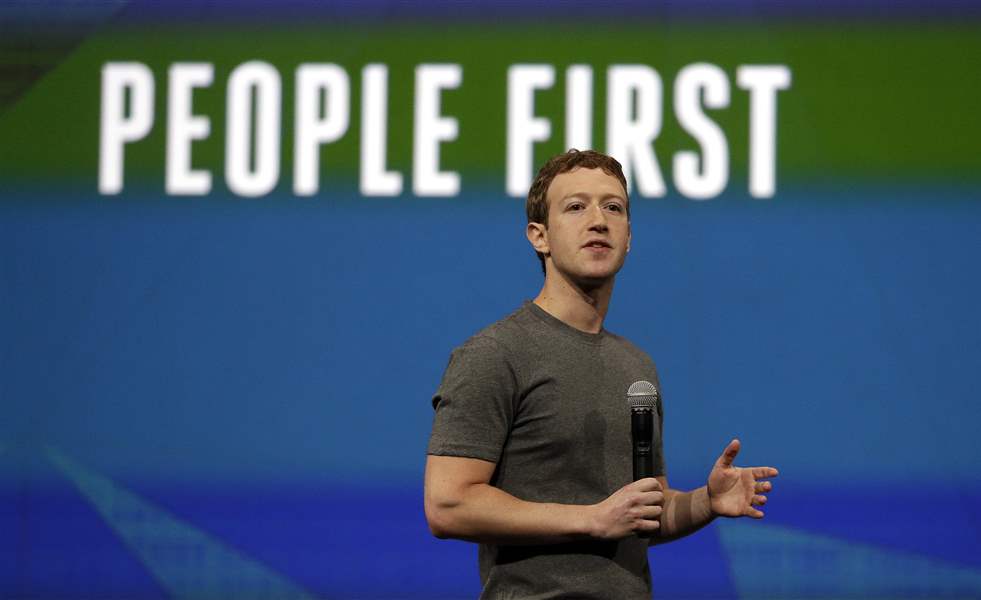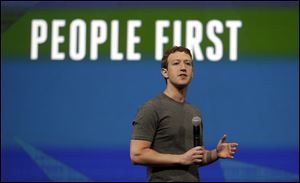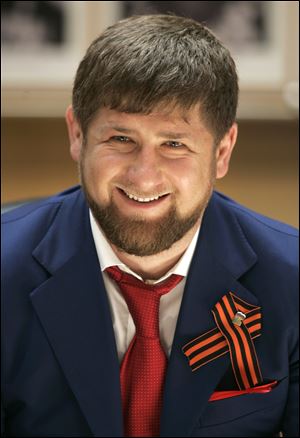
FREE SPEECH FOR THEE?
Facebook censors speech at the request of the U.S., Israeli governments
1/5/2018
Facebook has come under scrutiny this week after selectively deleting political accounts at the request of the U.S. and Israeli governments.
ASSOCIATED PRESS

Facebook has come under scrutiny this week after selectively deleting political accounts at the request of the U.S. and Israeli governments.
Facebook, the culturally ubiquitous social media platform with over two billion users, has come under scrutiny this week after selectively deleting political accounts at the request of the U.S. and Israeli governments.
First, the tech giant was “deliberately targeting” the accounts of several pro-Palestinian groups and activists at the behest of the Israeli government.
According to a report from Al-Jazeera, “Israel submitted 158 requests for Facebook over the past few months to remove what Israel deemed as ‘inciting content,’ and the company complied with 95 percent of those requests.”
The New York Times appeared to confirm this report earlier this month. “Israeli security agencies monitor Facebook and send the company posts they consider incitement,” wrote chief White House correspondent Peter Baker. “Facebook has responded by removing most of them.”
When you consider that more than 95 percent of Palestinians said their primary use of Facebook was for following news, the consequences of Facebook’s actions become much clearer. In effect, Facebook has given Israel the power to censor speech with which it disagrees by removing it from the internet.
Nadim Nashif, co-founder of the Arab Center for the Advancement of Social Media, told Al-Jazeera that he believes Facebook’s censorship of Palestinian dissent is tantamount to an endorsement of the Israeli occupation. "What is happening is that Facebook is adopting the definition of the occupier about what incitement is,” he said.
And, as Al-Jazeera notes, “Facebook hasn't met Palestinian leaders to discuss their concern.”
Similarly, Facebook elected to delete the accounts of Chechen leader Ramzan Kadyrov earlier this week. Mr. Kadyrov has been accused of a number of human rights violations, including placing LGBTQ people in concentration camps and having political opponents killed.
Owing to these charges, the U.S. government imposed travel and economic sanctions on Mr. Kadyrov. In turn, Facebook has deactivated Mr. Kadyrov’s accounts, telling the New York Times that the company had a “legal obligation” to deactivate Mr. Kadyrov’s accounts as a result of these sanctions.
But, as has been noted by other observers, the “legal obligation” has not caused Facebook to close the accounts of other people affected by U.S. sanctions, like Venezuelan president Nicolás Maduro or Syria’s Bashar al-Assad.

Facebook elected to delete the accounts of Chechen leader Ramzan Kadyrov earlier this week. The U.S. government recently imposed travel and economic sanctions on Mr. Kadyrov.
So is it Facebook that has inconsistently applied this policy or has it been the U.S. government? It is difficult to say. But as Facebook makes much-publicized claims about improved transparency in the midst of the Russia election investigation, glaring ambiguities in a policy that allows the censorship of political speech need to be addressed.
Jennifer Stisa Granick, a staff attorney with the American Civil Liberties Union’s Speech, Privacy and Technology project, highlighted the issues raised by the termination of Mr. Kadyrov’s Facebook accounts.
“It’s not a law that appears to be written or designed to deal with the special situations where it’s lawful or appropriate to repress speech,” Ms. Granick told the Times. “This sanctions law is being used to suppress speech with little consideration of the free expression values and the special risks of blocking speech, as opposed to blocking commerce or funds as the sanctions was designed to do. That’s really problematic.”
Read last week’s ‘Free Speech For Thee?’ column
Mr. Kadyrov is not a sympathetic figure, and many readers many find Palestinian activists to be equally unsympathetic, but the growing willingness of Facebook to police political speech at the behest of governments is deeply concerning.
When unsavory figures like Mr. Kadyrov are censored, it tends to confuse the issue because we like to see bad actors punished. It also tends to embolden censors and encourage repressive policies.
As The Intercept’s Glenn Greenwald wrote, “It’s hard to believe that anyone’s ideal view of the internet entails vesting power in the U.S. government, the Israeli government, and other world powers to decide who may be heard on it and who must be suppressed.”
Giving Facebook the leeway to censor speech now, particularly at the encouragement of government actors, will assuredly allow them to censor even more speech in the not-so-distant future. Our country must decide if we are comfortable bestowing that much power in one company. I certainly am not.
Contact Will Tomer at wtomer@theblade.com, 419-724-6404, or on Twitter @WillTomer.